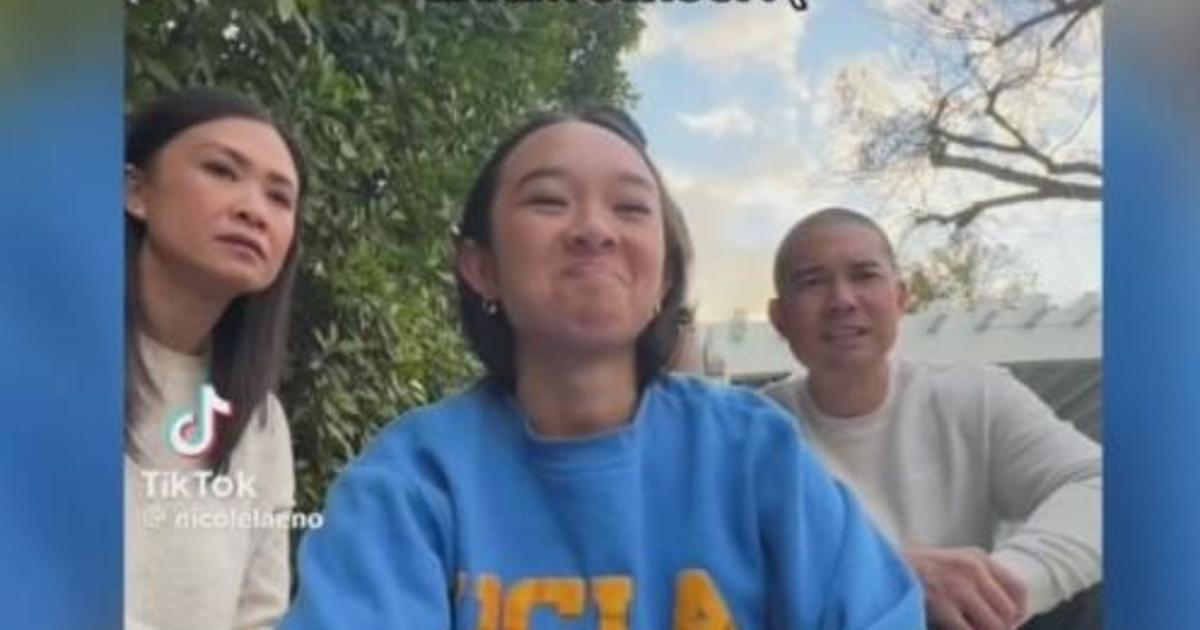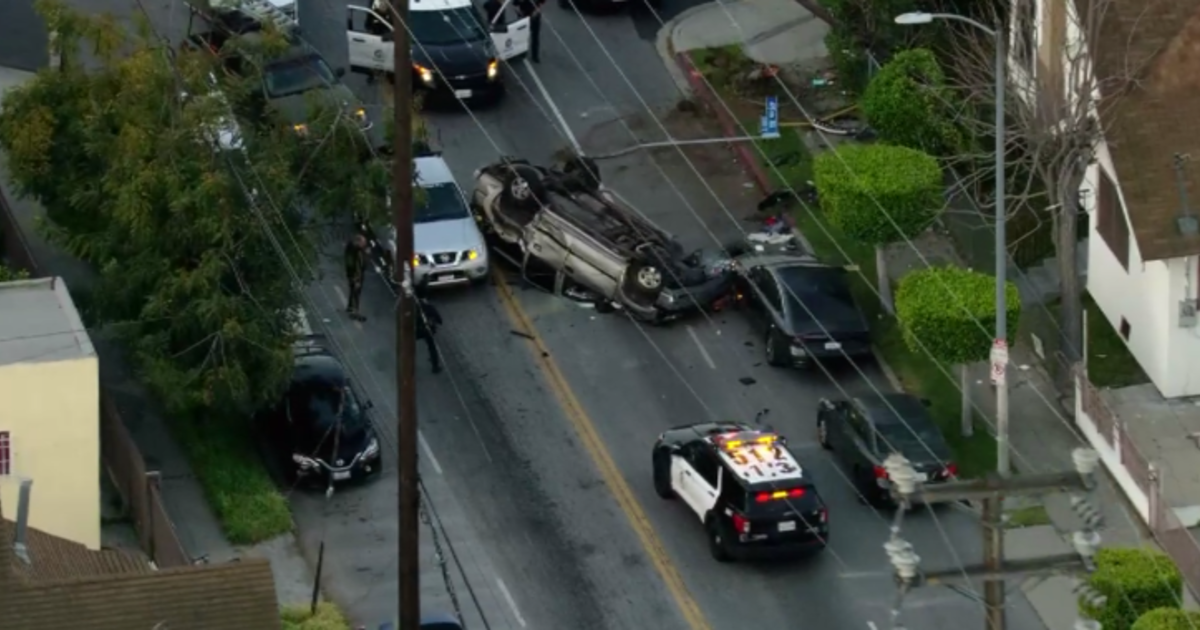Schwarzenegger Departs Without Major Budget Reform
SACRAMENTO (AP) — In calling California lawmakers back for an eighth special session in seven years, Gov. Arnold Schwarzenegger said the next governor will inherit a budget mess "just like I did the first year when I came into office."
While he can't hide the state's persistent deficit, Schwarzenegger is seeking to spread the blame for California's ongoing fiscal problems. The departing governor has faulted a steep drop in tax revenue on the deepest economic downturn since the Great Depression, lamented how a broken political system has resulted in gridlock over budget reforms and even chastised the media for the way they report on the problem.
"I think that it has a lot to do with that you guys are confusing them, too," he told reporters after announcing his special session, citing reports that said the budget deficit was estimated at $25 billion over the next 18 months rather than focusing on the $6 billion shortfall in the current fiscal year.
Next month, the celebrity governor who swept into office in 2003 after the only recall of a sitting governor in California history will step down without accomplishing his main goal: fixing California's structural budget problems.
He said he wanted California government to live within its means, but the annual imbalance between what the state collects in taxes and its spending commitments persists.
He said he wanted to "end the crazy deficit spending," but the deficit is as high as ever and has plagued Schwarzenegger through most of his two terms.
And he said he would "tear up the credit cards," but he leaves office with the state owing some $91 billion in total bond debt compared to $34 billion the year he took office, according to the state treasurer's office. Bond debt as a percentage of the state's general fund has roughly doubled in that timeframe, to just less than 7 percent.
California taxpayers still have $7.4 billion left to pay on the $15 billion in so-called Economic Recovery Bonds that Schwarzenegger persuaded them to approve in 2004 to close that year's deficit.
"He discovered what others have discovered," said Fred Silva, senior fiscal adviser at California Forward, a bipartisan group of business and political leaders that is seeking solutions to the state's fiscal and political problems. "If you're finding it difficult to raise taxes or cut programs, the release valve was to borrow money. He fell into that kind of fiscal trap."
Schwarzenegger says he has made important structural changes that will take time to pay dividends, such as banning future borrowing to cover budget deficits and persuading lawmakers to place a rainy day fund on the 2012 ballot.
He also has overseen tens of billions of dollars in program cuts as the recession wiped out tax revenue and left California with an unemployment rate above 12 percent.
"We have made some great progress in putting California's finances on a little bit more solid ground, progress that I'm very proud of," Schwarzenegger said in his final month in office.
Annualized spending growth under Schwarzenegger is 1.4 percent, the lowest of any governor in recent state history. That is primarily a factor of lower revenue and deep program cuts during the recession.
His administration also negotiated reforms to welfare, workers' compensation, health insurance for the poor and the parole system.
"He did the budget reform the hard way, by ripping out spending," said his chief of staff, Susan Kennedy.
Even so, California's projected deficit is expected to get worse because of recently enacted federal tax changes that will mean less revenue for the state.
The state's general fund continues to be filled with more mandates and commitments than can be covered by the level of tax revenue coming in, and the tax system remains overly dependent on top income earners. The recommendations of a tax commission established by Schwarzenegger and Democratic legislative leaders were ignored.
Many of the steps Schwarzenegger approved to resolve deficits were not long-term solutions for balancing the budget but rather short-term steps to get through the current fiscal year.
Deficits were closed on paper by relying on accounting gimmicks, shifting money between various government funds and relying on overly optimistic revenue projections.
Kennedy acknowledged the governor allowed billions in internal borrowing but said, "I don't think anybody could have avoided it."
Silva, a longtime chief consultant in the state Senate, said the governor and lawmakers made the mistake of trying to jam budgets through each summer without taking a longer view of the structural problem.
The state's budget challenge is viewed through a different lens today than when voters ousted Democratic Gov. Gray Davis and installed Schwarzenegger, optimistic that he had the independence and personality to see through permanent reforms. Voters now give Schwarzenegger the same low approval rating they gave Davis before he was booted from office and express skepticism that he and lawmakers can solve the state's biggest problems.
"He came in riding a wave of protest about various things, but probably the centerpiece was the shape of the budget at the time," said former state Assemblyman Roger Niello, R-Fair Oaks, who served as vice chairman of the Assembly Budget Committee. "He leaves with the centerpiece of our problems, obviously, being the budget."
He said the job of making long-term structural fixes, such as realigning spending priorities and revamping the tax structure, might be too big even for a personality as outsized as Schwarzenegger.
Schwarzenegger, who had never held public office before running for governor, also squandered some opportunities early in his tenure.
His first act was to fulfill a campaign promise and roll back an increase in the vehicle license fee, a move that now costs the state about $6 billion a year. Schwarzenegger did not replace the fee or make corresponding spending cuts.
Kennedy defends the governor, saying he started off with a bad hand and had to undo an illegal maneuver by the Davis administration. She served as cabinet secretary and deputy chief of staff to Davis but left in early 2003, before he raised the vehicle fee.
In 2005, Schwarzenegger abandoned his California Performance Review, which recommended steps to eliminate waste and improve government efficiency. He did so just before the Little Hoover Commission was expected to recommend against the proposals.
Later that year, he called a special election to address a host of issues, only one of which -- to establish a state cap on spending -- dealt directly with budget reform. The others sought redistricting reform, lengthening the time it would take teachers to get tenure and reducing the ability of public employee unions to raise dues, a move that was intended to reduce political donations for Democratic candidates and causes.
All four were trounced at the polls, forcing Schwarzenegger to retrench.
"He kind of had his head handed to him on a platter after that election," Niello said. "That really changed things."
Schwarzenegger then sought to work with Democrats, the Legislature's majority party, and essentially dropped work on budget and tax reform during the heart of his time in office.
In 2006 and 2007, he and the Legislature campaigned for $37 billion in public works bonds, passed a landmark greenhouse gas emissions law and pursued an ultimately unsuccessful reform of the health care market.
Schwarzenegger took up tax reform well after the recession had begun battering California's economy, but by then he was unable to build the legislative coalitions he needed for serious reforms.
In May 2009, voters rejected measures placed on the ballot by Schwarzenegger and the Legislature for a spending cap and rainy day fund, in part because they were tied to temporary extensions of tax and fee increases. The tax commission submitted its report in September 2009, but it was quickly shelved by lawmakers.
"At that point, it was too late frankly to solve the budget problem before his term ended," Niello said.
(© Copyright 2010 The Associated Press. All Rights Reserved. This material may not be published, broadcast, rewritten or redistributed.)



